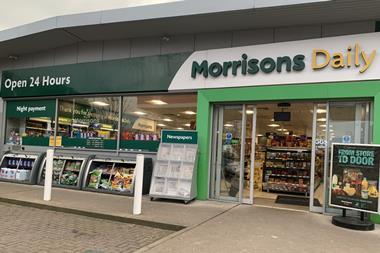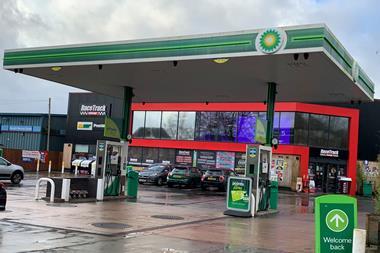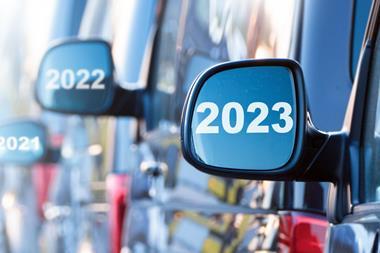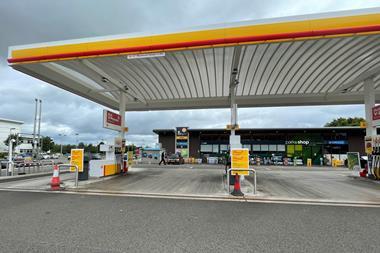The news that the European Commission is to introduce limits on the charges retailers pay for processing credit card and debit card payments has been welcomed by the PRA, but chairman Brian Madderson said a lot more still needs to be done to address problems in this area.
The first thing that needs to be noted, he says, is that it will be years, rather than months until these changes have an impact. The EC proposes to introduce caps on the ’merchant interchange fees’ of 0.2% for debit cards and 0.3% for credit cards. He says: "This is now a formal proposal of the Commission and will be subject to consideration by the EU Parliament and the Council of Ministers. This will take some time to complete and is likely to be the subject of extensive lobbying from banks and payment providers." In addition the EC is proposing that initially it will only affect cross-border transactions within the EU, and there will be a 22-month transition period before they apply to domestic transaction.
If we simply wait for these caps to be introduced, he warns, the current level of charges will continue to be a huge burden on many businesses already battling conditions in a very tough market, and there is more that the UK government can do.
In a submission responding to a consultation by The Treasury into the payment card market, the PRA demonstrated how damaging the high level of fees was to the forecourt sector. Currently most filling stations are making a gross margin of about 3 pence per litre (ppl) on the fuel, it said, so with a sale of 50 litres of petrol at about 140ppl the margin would be £1.50.
However, the total paid by the customer would be £70, and with a typical merchant service charge (MSC) of 1% of the transaction this would equate to 70p on this sale, or 46% of the available gross margin
In its evidence the PRA also pointed out that with some premium rate cards the MSC can be as high as 2%, equating to 2.8ppl, which would swallow up almost all the retailer’s margin. Furthermore the deals with banks force retailers to accept all their cards, so retailers cannot refuse the premium cards, and recent legislation prevents any kind of surcharge. There is also a lack of transparency as retailers will not know how much they have been charged for accepting these payments until they see the statement from their bank.
Heavily affected
The PRA also pointed out that petrol retailers are more heavily affected by cards fees than most other retailers because while an average of about 48% of all retail transactions are paid for with cards, about 70% of payments at forecourts involve cards.
A further difference between the fuel sector and other retailers is that so much of the price of its product is VAT and duty. As forecourt operators currently pay MSC on the entire transaction, they are paying about 60% of their MSC for money they are collecting for the government. In several EU countries, including Germany, and Italy, petrol retailers are recognised as a special case because of this tax collecting responsibility and a lower cap is therefore imposed on MSCs in the sector. The PRA calls for a similar treatment for the sector in the UK.
Gordon Balmer of Fuel Card Insights says that the burden of MSCs also falls most harshly on the smaller independent operators in the sector. He acted as a consultant to the PRA on its submission to the treasury and says that to a degree operators supplied by oil companies such as Shell, Exxon and Mobil are insulated against the MSCs. When these oil companies calculate the fuel prices for their customers they add in a sales margin and this includes an allowance for the MSC.
However, some of the other oil companies have changed their stance and have begun paying MSCs only up to a certain level, leaving the retailers to pay the rest, and these businesses are seeing the true cost of MSCs for the first time.
Fully independent operators have to pay the full cost of MSCs and because they do not have the support of oil companies or the buying power of larger groups they are also likely to be paying higher fees as well.
In addition to the special recognition for petrol retailers, the PRA is also campaigning for the creation of a regulator for the payment services industry in the UK. Madderson says such a regulator could take quicker action before the European regulation becomes active, to identify anti-competitive practices and to require greater transparency from card providers around charging and contractual practices.
Balmer says: "There is a definite need for legislation and for more transparency. It is a nightmare for retailers to understand all the different merchant fees. One of the roles of a regulator would be to ensure retailers were better educated about this."
While the announcement by the EC has focused attention on credit and debit cards the PRA’s submission to The Treasury also addresses the issue of fuel cards. The PRA says that the MSCs associated with some types of fuel cards tend to be higher than those associated with credit cards and that in some cases the MSCs can potentially make transactions loss making.
However, because of the volume of business involving such fuel cards, sites have no option but to continue accepting them because of the volume of business involved (including additional shop sales), and because of the difficulty involved in preventing drivers from using them if they have used them at the site before.
The PRA says there is a lack of transparency in the way MSCs are calculated and it is seeking to reduce the level of charges to a fair rate compared with the available gross fuel margin.
When the EC caps come into force it will no doubt increase downward pressure on fuel card MSCs, but with businesses failing every week, Madderson warns some don’t have the luxury of waiting a few years for a fairer system. It is to be hoped that the UK government has the guts to take on the banks much sooner and introduce some domestic regulation that will iron out many of the wrinkles in the system.
Have your say
As detailed above, the PRA welcomes the EC’s plans to reduce merchant service charges (MSCs) as a step in the right direction, but it believes that the urgency of the situation demands faster action.
PRA chairman Brian Madderson says: "We continue to lobby for change to become effective more quickly and to support this we need to keep the pressure up on the regulatory authorities."
He says PRA members can help by taking part in an online survey on MSCs that the EC has commissioned Deloittes to carry out.
However, Madderson says that so far response rates have been disappointing and that out of 45 completed answers from UK retailers only three are petrol stations.
He says responding to the survey should take about 15-30 minutes, and the questions deal mainly with the annual number and value of payments processed, for the various payment means that companies accepts.
The survey can be found at: https://dexsurvey.deloitte.com/anondirect.asp?xid=49993 and the closing date has been extended until the end of August 2013.
Madderson adds: "Without your support things won’t change so please take some time to ensure your views are heard."





























No comments yet